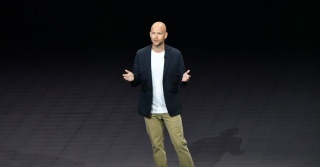Righteous rant from Edward Zitron about fawning, credulous OpenAi coverage.
business
Walmart, John Deere, Tractor Supply and other companies are changing or walking away from diversity, equity and inclusion (DEI) policies. But Costco believes DEI helps its “treasure hunt” shopping atmosphere, and it is standing behind its efforts.This is the way. Happy to see this.
"There are also health and attitudinal consequences for managers who are laying people off as well as for the employees who remain. Not surprisingly, layoffs increase people’s stress. Stress, like many attitudes and emotions, is contagious. Depression is contagious, and layoffs increase stress and depression, which are bad for health."This Stanford professor says the current tech layoffs aren’t based on business fundamentals or economics. It’s basically bad vibes among lemming executives that is causing real pain for everyone.
"One might think—or hope—that, after Enron, WorldCom, Bernie Madoff, Jordan Belfort and the 2008 financial crisis, that the business press could harbor skepticism about financial and business leaders in general, but particularly those in a shadowy, emerging sector known for its instability (Forbes, 5/10/22) and its susceptibility to scams (Forbes, 9/23/22)."The business press functions as a cheerleader rather than a critic. People who care about the impact of businesses on people are in a different business.
"And yet if there’s a lesson of the past four years, it’s that thoughtfulness and craftsmanship only got the company about 10 percent as far as Microsoft did by copy-pasting Slack’s basic design."Casey Newton on Salesforce buying Slack and the realities of enterprise software. I’m really rooting for Slack—it is truly joyful software. I think Casey misses the ways Slack might transform Salesforce.
A note from our dystopian present where software ate everything and humans are API endpoints rather than driving the system:
"A future that plans on everything going right so no one has to think about what happens when things go wrong. Because computers don’t make mistakes. An automated future where no one actually knows how things work. A future where people are so far removed from the process that they stand around powerless, unable to take the reigns."Not a big deal for watching movies but this could be tragic applied to more critical areas of our lives. It's good to watch out for this and push back on it.

"In other words, we have changed our relationship with photography and photographs. It used to be that, photos served as a portal to our past. Now, we are moving so fast as we try to keep up in the age of infinitesimal attention spans."Nice thinking here about the future of cameras as our relationship with photography changes.

Great news for Gimlet, especially for my favorite show Reply All. Congrats! Troubling aspect: could this signal the end of open web distribution of podcasts? Moving away from RSS to walled gardens would be a total buzzkill.
Update (2/6): It is so, Audio-First.
Update (2/6): It is so, Audio-First.
-
Sounds like the shift to phones and tablets means less TV time. "In all, about 5 million people ended their cable and broadband subs between the beginning of 2010 and the end of this year."
-
Tim O'Reilly reflects on his successes and failures in building a sustainable business. "While our ideals are what define us, combining those ideals with a results-oriented business culture is how we have continued to thrive." [via anil]